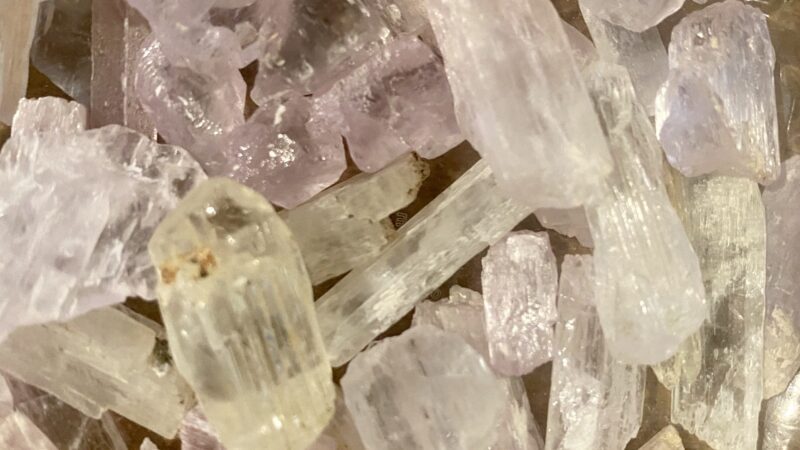The couple that owns a lithium deposit in Newry potentially worth more than a billion dollars is urging the Legislature to act quickly to “clarify” state mining laws so they can mine the find as soon as possible.
Specifically, Mary and Gary Freeman want lawmakers to “restor[e] Maine mining law to its pre-2017 wording.” Doing so, they say, would mean the deposit would be regulated under Maine’s quarrying regulations, rules that are much less stringent than the state’s laws governing mining for metals such as copper, zinc and silver.
In a statement sent to The Monitor on Monday, the first time the couple has spoken publicly about their find in more than a year, the Freemans wrote that some of the proposals before the Legislature regarding mining in Maine are “complex and involve time‐consuming strategic planning for Maine’s mining future; however, in the meantime, a simple decision could be made to clarify the current law with regards to what is, and what is not ‘metallic.’”
Lawmakers are currently considering at least eight mining related bills this session, most, if not all, of which were prompted by the find in Newry. The proposals, most of which are still in early draft stages, run the gamut: one, LR 1624, sponsored by Rep. Maggie O’Neil of Saco, proposes a moratorium on lithium mining, while others (LR 1304, An Act to Promote Sustainable Lithium Mining in Maine, sponsored by Rep. Mike Soboleski of Phillips) are more full-throated in their support of the activity.
A court case filed by the Freemans challenging a DEP decision has been stayed while the proposals play out, according to Monday’s statement.
RELATED: Couple that discovered lithium deposit is fighting in court to mine it
At issue in both the court case and in the proposals making their way through the legislature is the phrasing of the 2017 law, which refers to “metallic mineral.” Most minerals contain metallic elements, but the term has no commonly agreed upon definition in the scientific community. That has made it difficult for state regulators to figure out what qualifies as one without explicit guidance from lawmakers.
Spodumene, the mineral that contains the lithium-bearing crystals, which has no history of regulation in Maine, was not discussed during talks on the law and should thus be considered a metallic mineral, said DEP officials, even though the mining act’s regulations “exceed what would be necessary to allow environmentally responsible extraction of spodumene, and effectively prohibit spodumene extraction.”
The Freemans argue that spodumene is a rock, not a metal, and should fall under the state’s quarrying regulations. The end product also matters: the couple say they plan only on excavating and selling the larger spodumene crystals, not processing them for the metal (lithium) they contain. If the Freemans sold the spodumene, another entity could then extract the lithium, a process that would likely happen outside the state, given Maine’s regulations.
“[The DEP’s] interpretation would make table salt, baking soda, quartz, spodumene, and anything containing calcium {including limestone} ‘metallic’ by Maine mining law,” the Freemans wrote.
The couple, who split their time between Maine and Florida, have gem-hunted in western Maine for decades, and slowly bought up land in the area to expand on their prospecting work. Freeman Resources now owns more than 3,000 acres in Newry, according to tax records.
Kate Cough reports on the environment for The Maine Monitor. Reach her by email with other story ideas: kate@themainemonitor.org.





